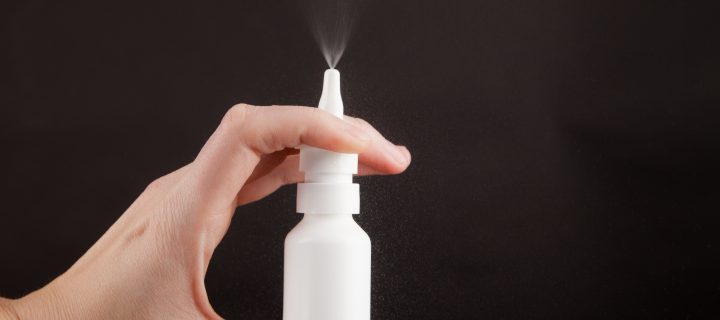From drinking too much wine, to over-using your cell phone and eating rocks, everything seems to be potentially addictive these days. Even nose sprays.
According to the Mayo Clinic, people are using nasal sprays to clear up their congestion. Most of us are generally aware of this much. However, a certain pocket of the population is worried about using the sprays too often. They feel that they’re becoming addicted.
How? They get, you know, that feeling you have when you’ve used three sprays of decongestant to loosen things up a few days ago, but then the following day you find yourself reaching for five. And then seven. It can seem like a dangerous obsession.
But Dr. James T.C. Li of the Mayo Clinic says not to worry. If this is you, what you’re likely experiencing is actually the fault of the nasal spray itself. It’s called rebound congestion. When you stop using the nasal spray, your nasal passages can actually become more congested than they were before you started using the product, at least temporarily.
Related: Why You’re Addicted to Your Smartphone
This can cause you to desire to use more and more, but Dr. Li says this doesn’t fit the description of a true addiction. To be a true addiction something needs to be “a compulsive physiological need for and use of a habit-forming substance known to be physically, psychologically or socially harmful”.
Your nasal spray won’t actually hurt you. In fact, experts say you can use sprays containing steroids for years without a problem- and they don’t cause the rebound effect.
Of course, you’re the true judge of your habits. If you feel like you rely on your sprays more than you’d like, try to stop buying them. Your nose may clear up naturally in a few days, on its own. It will probably feel stuffed up in the process though.
Or, you could always try some hot chili sauce to tackle that sinus inflammation. Researchers at the University of Cincinnati say they can work wonders.
Photo credits: Nicole Lienemann/Shutterstock.com












